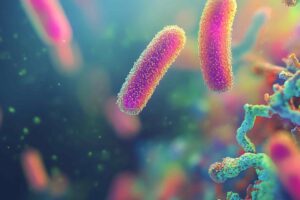gut microbiota
Gastroenterology, Events
Heather Armstrong, from University of Manitoba and University of Alberta (Canada), explores the intricate role of dietary fibers in maintaining gut health, focusing on the microbiome’s ability to process these…
Oncology
This article presents “The Cancer Microbiota Database," an interactive and customizable tool to investigate 33 types of cancers.
Gynecology
The findings suggest that 4-hydroxyindole could be a promising biomarker for diagnosing endometriosis.
Gastroenterology, Scientific research
The study identified a core microbiota signature that may serve as a health indicator and a therapeutic target.
Scientific research
Standardizing microbiome analysis improves the quality and reliability of data, helping researchers to explore the gut microbiota’s impact on athletes and its relationship with health and performance.
Gastroenterology, Pediatrics
The results also indicate that the hospital environment influences the gut bacteria of preterm infants, highligting the importance of managing antibiotics and medications to support a healthy gut development.
Gynecology
A systematic review recently published in the Journal of Reproductive Immunology provides a comprehensive overview of the emerging role of the microbiome in recurrent pregnancy loss (RPL).
Gastroenterology, Industry
Three-year collaboration to pioneer new insights in microbial sciences and health applications.
Gastroenterology, Events
The interview with Björn O. Schröder from Umeå University explores groundbreaking research on the gut mucus layer, which shields intestinal tissues from bacterial invasion and inflammation.
Gastroenterology, Industry
New microbiome based therapy demonstrates safety and potential benefits for liver cirrhosis and mental health.











